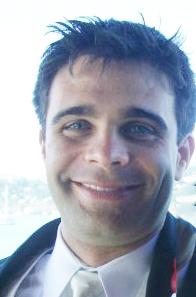event
BME Speaker Seminar with Nathaniel Huebsch, Ph.D.*
Primary tabs
*** FACULTY CANDIDATE ***
Nathaniel Huebsch, Ph.D.*
Senior Scientist
Institute for Quantitative Biosciences,
Department of Bioengineering,
University of California, Berkeley
Harnessing Mechanobiology to Create Better Disease Models and Therapies from Mesenchymal and Induced Pluripotent Stem Cells
ABSTRACT
Stem cell technology holds immense potential for tissue replacements therapies and for guiding drug development. However, these possibilities are hampered by challenges in controlling transplanted cell fate, and the limited prognostic capabilities of overly simplistic in vitro models.
I will describe the use of biomaterials and bioengineering approaches to overcome both sets of challenges. I will first describe studies on control of MSC differentiation via 3D hydrogel rigidity, the use of new biochemical and molecular fluorescence (FRET) assays to discover morphology-independent mechanisms for that MSC mechanosensing, and finally, the application of this knowledge to control osteogenic behavior of transplanted MSC. I will next describe the development of miniaturized Heart-On-A-Chip models from genetically defined Human Induced Pluripotent Stem Cells (iPS). Culturing iPS-derived cardiomyocytes (iPS-CM) in micro-tissues improves maturation into adult-like cardiomyocytes, leading to more clinically relevant physiology and pharmacology. In particular, iPS-CM in micro-tissues exhibit action potentials reminiscent of adult ventricular myocytes, which will likely improve their safety and efficacy in therapeutic transplantation, and increase their utility in drug efficacy and toxicology testing.
Finally, I will discuss future plans to combine hydrogel and organ-on-a-chip technologies to study mechanisms of mechanically and metabolically linked iPS-CM maturation, as well as to create in vitro models of familial heart disease and the development of other mechanosensitive tissues, including bone. I will also address the application of these mechanistic studies towards the design of new hydrogel materials to control the biology of iPSC and iPS-CM in the context of cell transplantation and cell manufacturing.
Host: Edward Botchwey, Ph.D.
Tuesday, February 14
10:30 a.m.
McIntire Room 3115,
Whitaker Bldg.
Videoconference:
Emory: HSRB E182
Georgia Tech: TEP 104
Status
- Workflow Status:Published
- Created By:Walter Rich
- Created:02/06/2017
- Modified By:Fletcher Moore
- Modified:04/13/2017
Categories
Keywords
Target Audience

